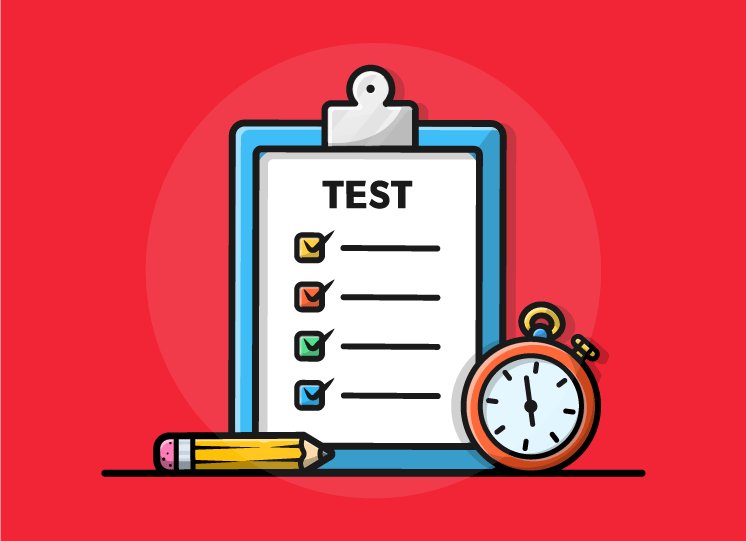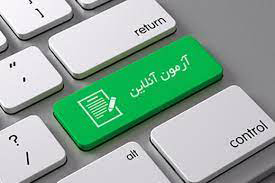چرا آزمونهای مهم، آنلاین برگزار نمیشوند؟
Why don’t we just put our high stakes exams on screen
شیوع کرونا استفاده از تکنولوژی در زمینهی آموزشی را بیشتر کرده است، پس آیا آزمونهای آنلاین قدم روشن بعدی نیستند؟
تبدیل ارزیابیهای حال حاضر به صورت آنلاین ارزشمند است: تجربهی ما از تهیهی آزمونهای پیشرفت کمبریج نشان میدهد که این کار باعث تسهیل دسترسی، صرفهجویی در زمان معلم، گردآوری اطلاعات گسترده، تشخیص سواد دیجیتالی فراگیران و همچنین سازماندهی بهتر ما میشود.
اما صرفا تبدیل آزمونهای کتبی به آنلاین، بدون تغییر در شیوهی ارزیابی، میتواند باعث از دست رفتن فرصتها شود و خطرات خود را دارد.
The pandemic has accelerated the take up of technology in education, so wouldn’t this be the obvious next step
Migration of existing assessments to screen has value: our experiences of developing Cambridge IGCSE Progression Tests[1] (and GCSE Topic tests developed by our UK exam board, OCR) show that migration can improve accessibility, release teacher time, provide rich data and recognise the digital literacy of learners as well as build our organisational capabilities
But simply migrating paper tests to screen – without changing the assessment models, the curricula– can miss opportunities and comes with risks
فرصتهای از دست رفته:
با اینکه امتحان آنلاین خوبیهای خودش را دارد این روش، از تکنولوژی نهایت استفاده را نمیبرد. با طراحی امتحانات دیجیتال از پایه میتوان:
- تدریس و یادگیری موثر را در عصر اینترنت مشاهده کرد.
- برنامهی آموزشی و آزمونهایی طراحی کرد که در محل کار و زندگی روزمره بیشتر کاربرد دارند.
- به نوعی آزمون را برگزار کرد که در روش کتبی ممکن نباشد.
- تکنولوژی را با تدریس، یادگیری و آزمون همراه کرد تا تجربهی آموزش ارزشمندتر شود.
Missed opportunities
While migration has its merits, this approach does not use technology to its full potential. By designing digital assessments from scratch – going back to the beginning and taking a transformational approach to assessment – we can
- reflect effective teaching and learning in the internet age
- design curricula and assessments which develop skills and behaviours which better reflect real life and work
- use technology to assess constructs in ways not possible with paper assessments
- embed technology in teaching, learning and assessment to add value to the educational experience
خطرات تغییر شیوهی آزمون
آزمونهای آنلاین به ظاهر یک موفقیت سریع برای ارزیابی دیجیتال است اما سه خطر اصلی را به همراه دارد:
ممکن است ابزار جایگزین کاغذ و خودکار نامعتبر باشند.
گاهی امتحانات آنلاین ابزاری را در اختیار فراگیران قرار میدهند که نحوهی پاسخگویی آنها تا حد امکان شبیه به نوشتن روی کاغذ باشد. برای مثال ویرایشگر معادله برای نوشتن معادلات و یا نقالهی دیجیتالی که میتوان برای اندازهگیری زوایا روی صفحه کشید. به نوعی، مثل این میماند که برای ارسال کد مورس (نوعی رمز) از تلفن همراه استفاده کنیم: امکانپذیر است ولی چرا باید همچین کاری بکنید؟ چه ارزشی را اضافه میکند و تا چه حد برای فراگیران معنی دارد؟ هدف کد مورس برقراری ارتباط سریع و امن بود، اکنون روشهای جدید و موثرتری برای این کار وجود دارد.
بیایید به معیارهای کیفیت امتحانات فکر کنیم: اعتبار، قابل اعتماد بودن و عدالت. آیا تغییر شیوهی امتحان به صورت آنلاین، عادلانه و قابل اعتماد است؟ آیا اثری مثبت روی تدریس و یادگیری دارد؟ خطر جایگزین کردن کاغذ و خودکار این است که با تقاضاهای ناخواسته، اعتبار نتایج را تهدید میکند.
تهدیدی دیگر برای اعتبار آزمونها این است که گاهی سوالات آنلاین موثر نیستند زیرا برخورد فراگیر با سوال به شکل انلاین و روی کاغذ تفاوت دارد. برای مثال دانشآموزانی که به صورت آنلاین در آزمون شرکت میکنند، کمتر روی کاغذ مینویسند، بنابراین فرایند تفکرشان برای رسیدن به جواب تغییر میکند.
Risks of migrating paper tests to screen
Migrating paper tests to screen seems like a quick win for digital assessment, but it comes with three main risks
On-screen tools designed to replicate pen and paper may be invalid
Migrated tests often include on-screen tools which allow learners to respond in ways as close as possible to how they respond on paper. For example, an equation editor may be used to allow them to write equations or a digital protractor that can be dragged across the screen to measure an angle. In some sense, this is like using a smartphone to send morse code: it’s possible, but why would you do it? What value does it add and how meaningful is it for learners? The purpose of morse code was to communicate immediately and securely – there are new and more effective ways of doing that
Let’s think about the quality criteria we apply to our assessments: validity, reliability, and fairness. Is using technology to replicate how a learner would work on paper fair, reliable, and valid? Does it have a positive impact on teaching and learning? The risk is that using tools to replicate pen and paper adds unintended demands and so threatens validity
Another threat to validity is that migrated questions sometimes don’t work because the way learners interact with them on screen is different from how they interact with them on paper. For example, candidates who work on screen are less likely to use jotting paper, so this changes the mental processes they use to get to their answers
عدم تطابق احتمالی یادگیری و ارزیابی
تطابق نداشتن آموختهها با ارزیابی، اعتبار و عدالت را به خطر میاندازد. به عنوان مثال، اگر نمودار کشیدن به صورت کاغذی به فراگیران آموخته شود، ارزیابی آنلاین میتواند ناعادلانه باشد. اما همچنین اگر برای اندازهگیری از ابزار دیجیتال استفاده کنند باید دریافت که این مورد چه تاثیری روی درک و بینش فرد دارد.
Potential mismatch between learning and assessment
A mismatch between the teaching and the assessment, puts validity and fairness at risk. For example, if learners are taught to construct graphs using paper methods and the assessment is on-screen then this could be unfair. But also, if learners are taught using an on-screen graphing tool, we need to understand how using the tool impacts on learners’ conceptual understanding
محدودیت مقایسهی دستاوردها
امتحانات آموزشی علاقهمند به مقایسهی نتایج هستند ( تقریبا وسواس دارند)، ولی این کار در آزمونهای آنلاین مشکل است؛ قابل مقایسه کردن آنها هم جلوی خلاقیت را میگیرد. اما تفکر دیجیتال دربارهی ارزیابی میتواند کمک کند دوباره تعریفی جدید از مقایسه بیابیم و از دید دیگری به آن بنگریم
Limitations to achieving comparability
We are interested in achieving comparability (verging on, obsessed by it) in educational assessment, yet this can be challenging between on-screen and paper-based tests. And requiring them to be comparable can hinder innovation. However, thinking digitally about assessment could help us reconceptualise comparability. For example, we could choose to think about comparability in a different way, like the currency an assessment gives learners to progress (rather than the demand of the questions) or in terms of the transferable skills learners develop (rather than the content coverage)
تحقیقات چه میگویند؟
ارزیابیهای کتبی محدودیتهایی دارند که دههها روی محتویات و شیوهی برگزاری آزمونهای مهم تاثیر گذاشته است. امتحانات آنلاین نیز محدودیت دارند، اما اگر سعی کنیم آزمونهای کتبی را عینا به صورت آنلاین برگزار کنیم، به طرزی غیرضروری محدودیتهای هر دو را با هم ادغام کردهایم و در نتیجه بهترین استفاده را از تکنولوژی نمیبریم.
با انتقال آزمونهای کتبی به رایانه تمرکزمان روی ناتوانیهای تکنولوژی قرار میگیرد. در مقایسه، روش تغییر شکل و تبدیل، از قابلیتهای تکنولوژی برای برنامهی آموزشی، تدریس و یادگیری و همچنین ارزیابی بهره میبرد.
What the research says
Paper assessment has limitations which have influenced what is assessed by high stakes exams and how for decades. On-screen assessments also have limitations. But if we try and replicate paper exams by moving them on-screen, we are unnecessarily taking on the limitations of both paper AND screen and so are not delivering the potential opportunities from using technology
By trying to migrate paper-based assessments to screen your focus becomes what technology can’t do. In contrast, a transformational approach embraces what the technology can do and how this can transform curricula, teaching and learning, and by extension, assessment
برای ورود به سایت دنیای واژه ها بر روی لینک زیر کلیک کنید.
– رقابت با بیش از 90 هزار شرکت کننده
– یادگیری واژههای کتب درسی، Longman، TOEFL، IELTS، GRE و بیشتر …
– یادگیری لغات از طریق استفاده از آنها در نوشتن داستان به انگلیسی
– در هرجا واژه نامه شخصی خود را به همراه داشته باشید
اینستاگرام دنیای واژه ها:
https://www.instagram.com/wow.kanoon.ir/
به دلیل انتقال بهتر مفهوم جملات کلمه به کلمه ترجمه نشده است.

